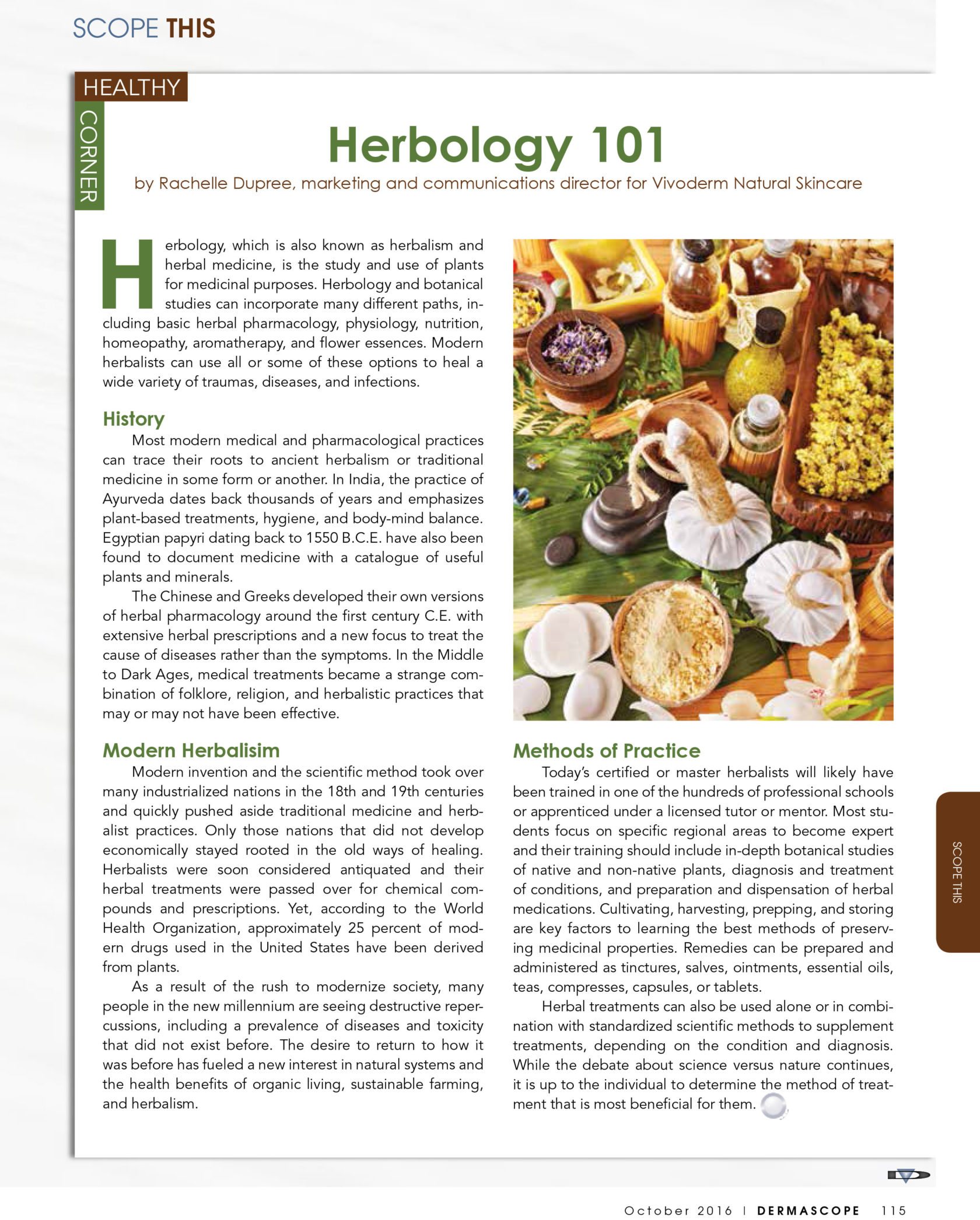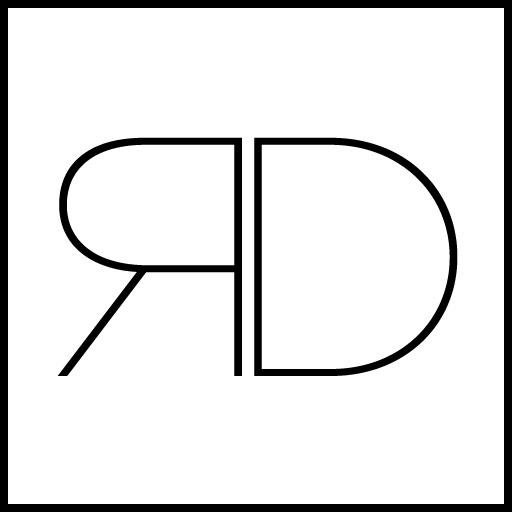
Herbology 101 This article was written for Dermascope Magazine, published in print and online, October 2016 (© 2016) Written by Rachelle Dupree, marketing and communications director for Vivoderm Natural Skincare. https://www.dermascope.com/scope-this/herbology-101 Herbology, which is also known as herbalism and herbal medicine, is the study and use of plants for medicinal purposes. Herbology and botanical studies can incorporate many different paths, including basic herbal pharmacology, physiology, nutrition, homeopathy, aromatherapy, and flower essences. Modern herbalists can use all or some of these options to heal a wide variety of traumas, diseases, and infections. History Most modern medical and pharmacological practices can trace their roots to ancient herbalism or traditional medicine in some form or another. In India, the practice of Ayurveda dates back thousands of years and emphasizes plant-based treatments, hygiene, and body-mind balance. Egyptian papyri dating back to 1550 B.C.E. have also been found to document medicine with a catalogue of useful plants and minerals. The Chinese and Greeks developed their own versions of herbal pharmacology around the first century C.E. with extensive herbal prescriptions and a new focus to treat the cause of diseases rather than the symptoms. In the Middle to Dark Ages, medical treatments became a strange combination of folklore, religion, and herbalistic practices that may or may not have been effective. Modern Herbalisim Modern invention and the scientific method took over many industrialized nations in the 18th and 19th centuries and quickly pushed aside traditional medicine and herbalist practices. Only those nations that did not develop economically stayed rooted in the old ways of healing. Herbalists were soon considered antiquated and their herbal treatments were passed over for chemical compounds and prescriptions. Yet, according to the World Health Organization, approximately 25 percent of modern drugs used in the United States have been derived from plants. As a result of the rush to modernize society, many people in the new millennium are seeing destructive repercussions, including a prevalence of diseases and toxicity that did not exist before. The desire to return to how it was before has fueled a new interest in natural systems and the health benefits of organic living, sustainable farming, and herbalism. Methods of Practice Today’s certified or master herbalists will likely have been trained in one of the hundreds of professional schools or apprenticed under a licensed tutor or mentor. Most students focus on specific regional areas to become expert and their training should include in-depth…
Read More